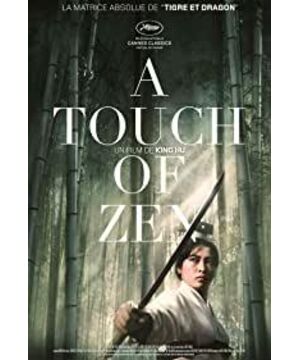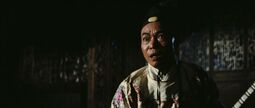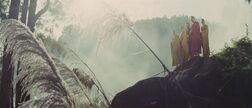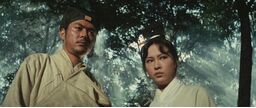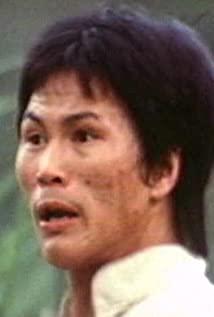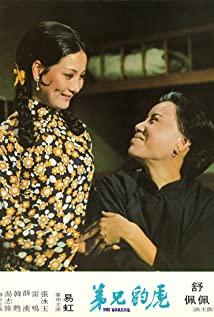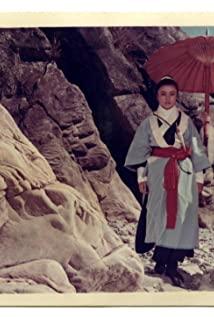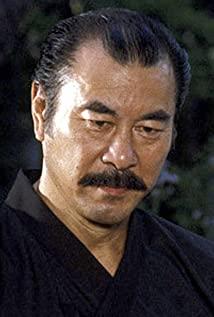However, what attracted me the most about this film: Hu Jinquan, as a film author, expressed his thoughts and helplessness in this film. From the beginning, the film embodies the author's meticulous sculpting of historical scenes, the title and subtitles are neatly imitated Song characters, and the background is rough paper. The dilapidated scene design of Jingluotun Fort and General Zhenyuan Mansion, as well as the layout of the shabby room and shop of the hero Gu Xingzhai, are very elegant, full of vicissitudes and books, and once made me wonder how Taiwan has such a realistic scene. For shooting. In fact, for this kind of film, the author can adopt generalized scene processing, spend less energy, and only let history provide a sense of distance in time; or adopt a constructive strategy to reflect the film’s creative design through the creative design of historical scenes. Style and talent of the author. Copying history as it seems is just the work of museums and historians. Hu Jinquan attaches such importance to such details, and even made a special trip to the Palace Museum to search for Ming Dynasty genre paintings for textual research. In addition to simply respecting history, he must have his own profound meaning.
Secondly, the character design of the film is also unusual in the martial arts film, even different from Hu Jinquan's famous work "The Dragon Inn". As the protagonist, Gu Xingzhai is a declining scholar who does not know martial arts. He lives by opening a shop in the town to "write letters and spring festival couplets". His mother persuaded him to take the test. ", in his home hung a "Quiet Zhiyuan" banner. When helping Xia Nu and the Dongchang spy gang to fight, Gu Xingzhai played the role of a military adviser and defeated his opponent twice with tactics. This type of male protagonist is rarely seen in martial arts films. Although scholars and outsponders are often part of the main characters, but in terms of not being able to martial arts, at least not in Hu Jinquan’s previous films. Yes, it is also extremely rare in the martial arts movies of the same era. Moreover, after the big victory, Gu Xingzhai showed weakness and passivity, deconstructing the image of this character, and he was not able to solve the problem with his own efforts. This also leads to the third topic below.
The biggest problem or characteristic in the narrative of "Xia Nv" lies in the rupture presented in the next episode. For a classic martial arts narrative, the main plot of the film should have ended when Gu Xingzhai and Xia Nu jointly fought against the East Factory spy group in Jinglutun Fort and wiped it out. However, after that, the film developed a sequel plot. Xia Nu left without saying goodbye. Gu Shengzhai was spotted by Dongchang staff in seeking Xia Nu, and Xia Nu rescued Gu Xingzhai with the help and guidance of the eminent monk. In the final part of the film, the leader of Dongchang could not beat the monk, pretending to convert to Buddhism, and then he made a scheming. The wound of the monk leaked golden blood, and everyone bowed in front of the monk. This paragraph of plot is completely redundant in terms of narrative structure, but for Hu Jinquan, the addition of this paragraph is obviously more meaningful. In fact, in his subsequent works, the description of eminent monks and Buddhism still runs through it, and this coherence and unity hint to us the author's psychology.
The above three characteristics of the film "Xia Nv", when interpreted in combination with Hu Jinquan's own experience, are actually very coherent. Hu Jinquan has a strong background in traditional culture. He has lived in the imperial capital Beijing since he was a child. He has extensive exposure to the culture of the Central Plains. His tireless textual research on history in movies represents his nostalgia for the past and his homeland after living in Hong Kong and Taiwan for more than a decade. When this kind of psychological nostalgia cannot be obtained, it is shown in the film that the realistic historical scenes bring the author and the audience this kind of virtual psychological satisfaction and comfort. Gu Xingzhai's life situation is a portrayal of Hu Jinquan himself as an intellectual in Taiwan's film and television industry, which embodies a strong sense of alienation in a troubled world. He has no direction and can only stand by culture. The last part of the film's plot is inseparable from the author's attempts and efforts to find solutions and meanings. Neither force nor wit could make Gu Xingzhai settle down. His little tranquility and Zhiyuan have long been unable to stabilize him in these troubled times. Religion may show him a direction. In Taiwan, as a foreigner, why is Hu Jinquan’s mentality that he is struggling to find meaning in such loneliness and anxiety and cannot obtain it? This kind of powerlessness and loss of intellectuals is exactly the collective psychology of that generation. Gu Xingzhai's final weakness and powerlessness are also the author's reflection and analysis of himself.
View more about A Touch of Zen reviews


